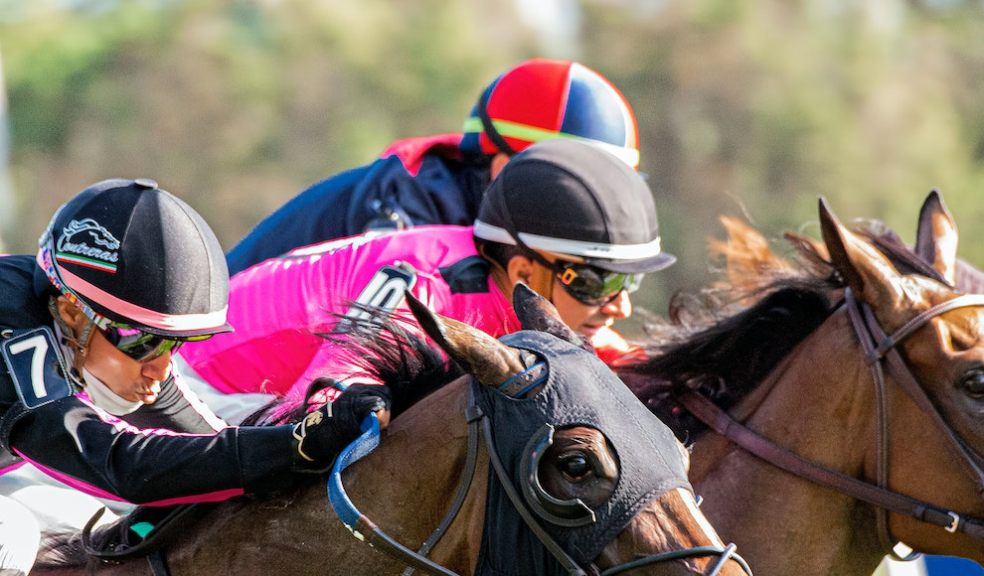
Let Us Clear up All Doubts About Virtual Sports: Are they Fixed, Just and Worth?
In recent years, the world of virtual sports has exploded, making popular games like tennis, horse racing, and football available to watch and wager on “virtually”. Actually, virtual sports are now the third largest market in the UK sports betting industry. We will highlight the fact that approximately five million viewers tuned in to witness Inspired Entertainment’s virtual horse race “Virtual Grand National 2020” as an example of how popular virtual sports in the UK and worldwide is. Those who placed bets on Potters Corner’s digital double had a good day.
Virtual sports are distinct from eSports, which are live computer game competitions that you may bet on with bookies. Instead, electronic teams, horses, or athletes compete against one another in virtual sports, with bettors having the opportunity to wager on them on the sites that have this particular market.
In that their outcome is determined by RNGs (Random Number Generators), virtual games are essentially no different from games like slots. Unless you play on unauthorised and uncontrolled sites, where anything is conceivable, they are meticulously tracked and monitored, indicating that they are in no position to be “fixed”.
Although these games are just, it is important to note that they have set parameters and poor RTP (Return to Player) percentages, making it more likely that you would lose money playing them than playing a more common casino game like Blackjack.
How Virtual Sports Work
The easiest approach for envisioning virtual sports is as a casino recreation of your preferred sports. You would understand that playing roulette on a computer would not be exactly identical to playing it at a real casino. Despite the fact that both generate results at random, the processes by which they arrive at those results are substantially different. Virtual roulette wheels employ an RNG; real roulette wheels utilise a ball, gravity, and science.
Sports played virtually follow the same rules. Consider placing a wager on a virtual horse race after choosing the most likely winner at odds of, say, 2/1. In addition, you are placing a wager on a genuine horse race in which the favourite is now favoured at odds of 2/1. In the actual world, the horse you bet on is performing well until the final fence, when it trips, loses its balance, and finishes fourth.
In the meantime, the horse you bet on in the simulated race never actually gets going and has trouble keeping up with the group, finishing fourth. While you would never presume that of a real-world horse race, there is a tendency to believe that there is some type of fix set in stone for the virtual one. Only the method in which it occurred differs between the two scenarios, with the horse placing fourth in both.
Virtual sports attempt to closely resemble actual sports by having events created by software that must abide by a set of regulations. Because of how similar they appear to genuine sports in the mind of a bettor, especially when you take into account the incredible visuals employed in the current world of sports betting, they can occasionally cause confusion. They frequently employ genuine competitors and the real sports’ rules.
The main distinction is how odds are applied to events. Using the aforementioned example, 2/1 odds on a horse are determined in the real world in part by its form and likelihood of winning, but they are also determined in part by how well-liked the horse is, as well as how many people bet on it. As a result, with respect to how many individuals back a horse, it is easy to discover horses with underpriced odds and overpriced odds. This may be exploited by certain individuals to make money as the astute gambler will notice it and identify horses that are overvalued.
However, in the virtual environment, the chances of 2/1 on a horse depend entirely on the likelihood that it will win; the odds are not affected by the number of other people backing it. This indicates that over an assortment of thousands of games, this horse is going to win about 1 in 2 races. Because there is not a second opportunity to take advantage of like there is in the real world, you are more likely to lose the more you play any fixed odds game. Another factor making these games poor value even for a game is their low RTP compared to other casino games.
Why Virtual Sports Are Popular
Because virtual sports are available for wagering anytime the player feels like it, their popularity has recently surged. Virtual sports may begin whenever there is a willing wagerer, as opposed to needing the patience to wait for a real athletic event to occur. This entails that you may wager on a virtual sport whenever you choose, which is obviously appealing to many.
Younger gamblers, who have spent their whole lives playing video games like FIFA and are accustomed to unreal sports, also choose virtual sports. Due to their popularity on both sides of the split, they also appeal to those who like sports betting but do not frequently wager on casino games. Regular real-sports bettors will automatically grasp how to place wagers on virtual sports. For sports bettors, this is exactly why these games are employed by businesses as a starting point for gambling; more on this in a moment.
There Are No Fixed Games from Licensed Providers
When you put many bets on virtual sports and lose them all, the inclination to conclude that they are rigged is understandable. Some individuals feel resentful when a bet they felt was a banker loses in virtual sports since you cannot see the mechanics in the identical way that you do with a real-life sport, i.e. sport that requires actual movement. Obviously, while doing this, people simply forget that banker bets frequently lose in actual life as well!
The results of virtual sports are determined using RNGs. At least, this is how the licensed providers best UK betting sites in 2023 at Bookmaker-Expert.com operate. They have the capacity to incorporate elements like odds towards how they function, which frequently misleads some bettors into believing that the wager would unquestionably win. The easiest way to describe it is to picture tennis balls with the digits 1 to 10 written on them. The winning number will be shown once a ball is randomly selected from a bag.
There would be precisely the same odds of any given number being pulled if you put one ball with each number inside the bag. However, the chances of drawing the specified numbers would change if you put the subsequent numbers of balls into that bag:
- 1 – nine balls
- 2 – 10 balls
- 3 – seven balls
- 4 – eight balls
- 5 – five balls
- 6 – six balls
- 7 – three balls
- 8 – four balls
- 9 – one ball
- 10 – two balls
The likelihood of drawing the number 10 ball off of the bag is still a possibility, but it is far less likely than drawing any of the other balls. The likelihood of the number 2 ball being pulled is the highest, but there is no assurance. That is a very simplified explanation of the manner in which RNGs operate; while every event is theoretically conceivable, certain outcomes are more likely to occur than others.
They Are Introductory Games for Slot Machines
In actuality, betting providers employ virtual sports as introductory games for their casino selections. Many sports bettors choose to wager on real-world sporting events that they are familiar with and knowledgeable about rather than playing casino games. They are drawn in to wager on virtual versions of the games they are accustomed to because they are familiar with parts of the virtual sports world, such as how the bets really function.
After engaging in virtual sports over a period, people will be more inclined to wager on other “virtual” recreations of actual events, such as electronic casino games. For betting businesses, this is a win-win situation since it allows them to entice bettors who are primarily sports gamblers to engage in some casino games in the long haul while also getting them to play virtual sports games that come with considerably lower RTP percentages in the short run.
The sum of money distributed to players over time is known as the RTP percentage. It is not the amount you will win back during your session but more so how much will be paid in return for everyone who plays that game over an extended period, let us say a year. If a game’s RTP is 95%, it does not always mean that every player will receive 95p for every £1 wagered; instead, it may mean that one player receives 50p while another receives £1.50, for instance.
Virtual sports typically have substantially lower RTP percentages than casino games, sometimes by a margin of as much as 5-10% percent. It makes far more sense to attempt to steer clear of virtual sports and instead go directly to the casino when you consider that some casino games, like Blackjack, allow you to move the RTP further in your favor by choosing to play a strategy.

















